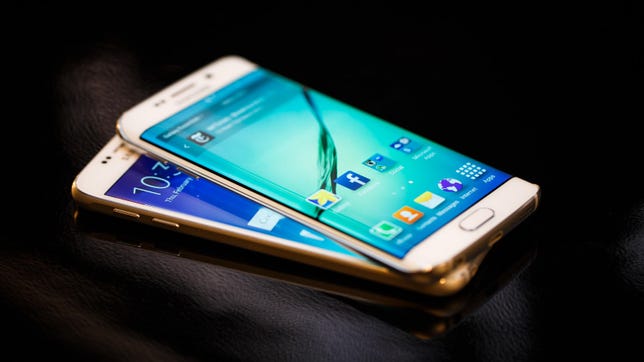
Josh P. Miller
The worldwide smartphone market was up again in the beginning of 2015, but someone needs to tell Samsung.
Samsung saw a decline in both smartphone sales and market share during the first quarter of 2015, research firm Gartner reported on Wednesday. The Korean electronics giant — which remains the leading smartphone vender worldwide — sold 81.1 million smartphones in the quarter, that’s 4.4 million less than the same period a year ago. The company’s market share stood at 24.2 percent, down from 30.4 percent in the first quarter of 2014.
Meanwhile, Apple managed to gain some ground on Samsung. The company’s iPhone scored 60.2 million sales during the first quarter, nabbing a 17.9 percent share of the worldwide smartphone market. During the same period in 2014, Apple’s market share stood at 15.3 percent on 43 million iPhone sales.
Lenovo was a distant third with nearly 19 million smartphone sales and a 5.6 percent share of the market. A total of 336 million smartphones were sold during the first quarter of 2015, said Gartner.
Gartner’s report provides further insight into what Samsung has been trying to address since last year: its grip on the worldwide mobile phone market is starting to slip. Over the past several quarters, Samsung has lost market share at the hands of competitors, like Apple, China-based Xiaomi and others.
Samsung has acknowledged that it’s having trouble in the smartphone space. During an earnings call late last year, Samsung said its marketing costs are skyrocketing in an effort to keep its smartphone shipments afloat. The company also said it may have made a mistake in 2014 by offering too many smartphone models — in just its flagship Galaxy S line, Samsung offered five models beyond the namesake Galaxy S5 — and not focusing enough on key products.
Samsung announced in November that it would cut the number of smartphone models it produces in 2015 by 30 percent. The news came after the company reported that its third-quarter income on mobile had tumbled 74 percent and its operating profits were the lowest they had been since the middle of 2011.
Samsung in March announced the Galaxy S6 and Galaxy S6 Edge flagship smartphones. The handsets, which feature a new version of Samsung’s TouchWiz software skin that runs atop Google’s Android operating system, come with a sleeker design than their predecessors and boast an all-metallic body. CNET Reviews had largely positive things to say about the Galaxy S6, giving it four-and-a-half stars out of five and adding that it’s the “Android phone to beat for 2015.”
The Galaxy S6 flagships could weigh heavily in Samsung’s second quarter, Gartner said. The company’s research director Anshul Gupta said that the S6 line will help Samsung, but is unlikely to grow sales.
“We expect Samsung’s drop rate to be slower than that seen in recent quarters with sales of its new S6 smartphones starting in the second quarter of 2015,” Gupta said in a statement.
Apple’s success, meanwhile, was due in large part to Asia, Gupta said. He noted that Apple’s growth in sales in key markets, including China, the largest market in the world, “helped it close the gap with Samsung globally.” In just one year, Gupta added, Apple has halved the difference between its smartphone sales and Samsung’s from 40 million to 20 million.
Neither Apple nor Samsung immediately responded to a request for comment.
No stopping Android
Although Samsung is one of the major contributors to Android’s success, Google’s operating system is still the dominant force in the mobile market, according to Gartner. The operating system owned 78.9 percent of the smartphone OS space in the first quarter on 265 million unit sales, reported the research firm. Apple’s iOS was a distant second with 17.9 percent share, and Microsoft’s Windows Phone had a 2.5 percent share.
While Android’s share was down slightly from 80.8 percent in the first quarter of 2014, it’s unlikely the operating system will lose too much share in the next several years.
On Tuesday, research firm IDC shared its predictions for the smartphone market through 2019. The company said that by the end of 2015, Android will own 79.4 percent of the worldwide smartphone market. That figure will drop slightly to 79 percent by the end of 2019. IDC said Apple’s market share will remain relatively the same over the next for years — holding on to 14.2 percent of the worldwide smartphone market in 2019, compared to 16.4 percent this year.
While not much will change in software in the coming years, for hardware vendors, looking ahead may require thinking seriously about competition with small vendors operating in emerging markets.
Gartner reported on Wednesday that small companies in emerging markets, like Asia, Eastern Europe, the Middle East and North Africa saw their smartphone sales jump 73 percent year over year in the first quarter. While individually those figures couldn’t match the likes of Apple and Samsung, in aggregate, their combined share of the global smartphone market jumped from 38 percent in the first quarter of 2014 to 47 percent last quarter.



